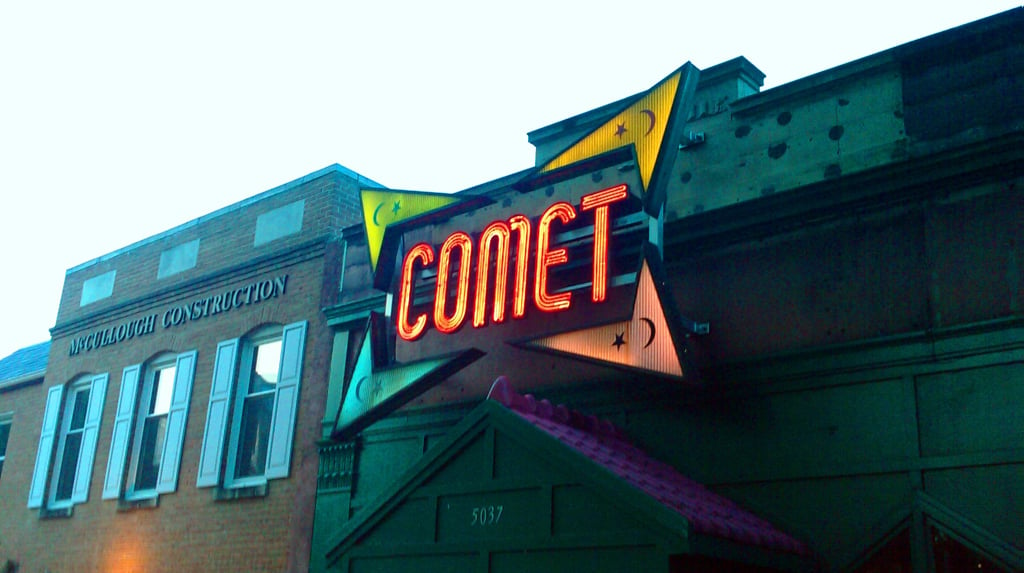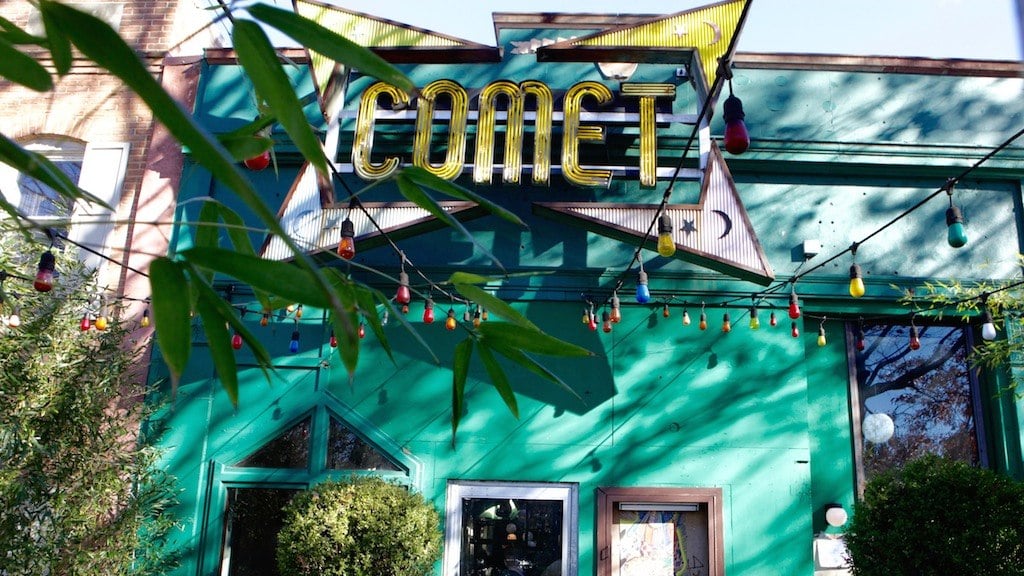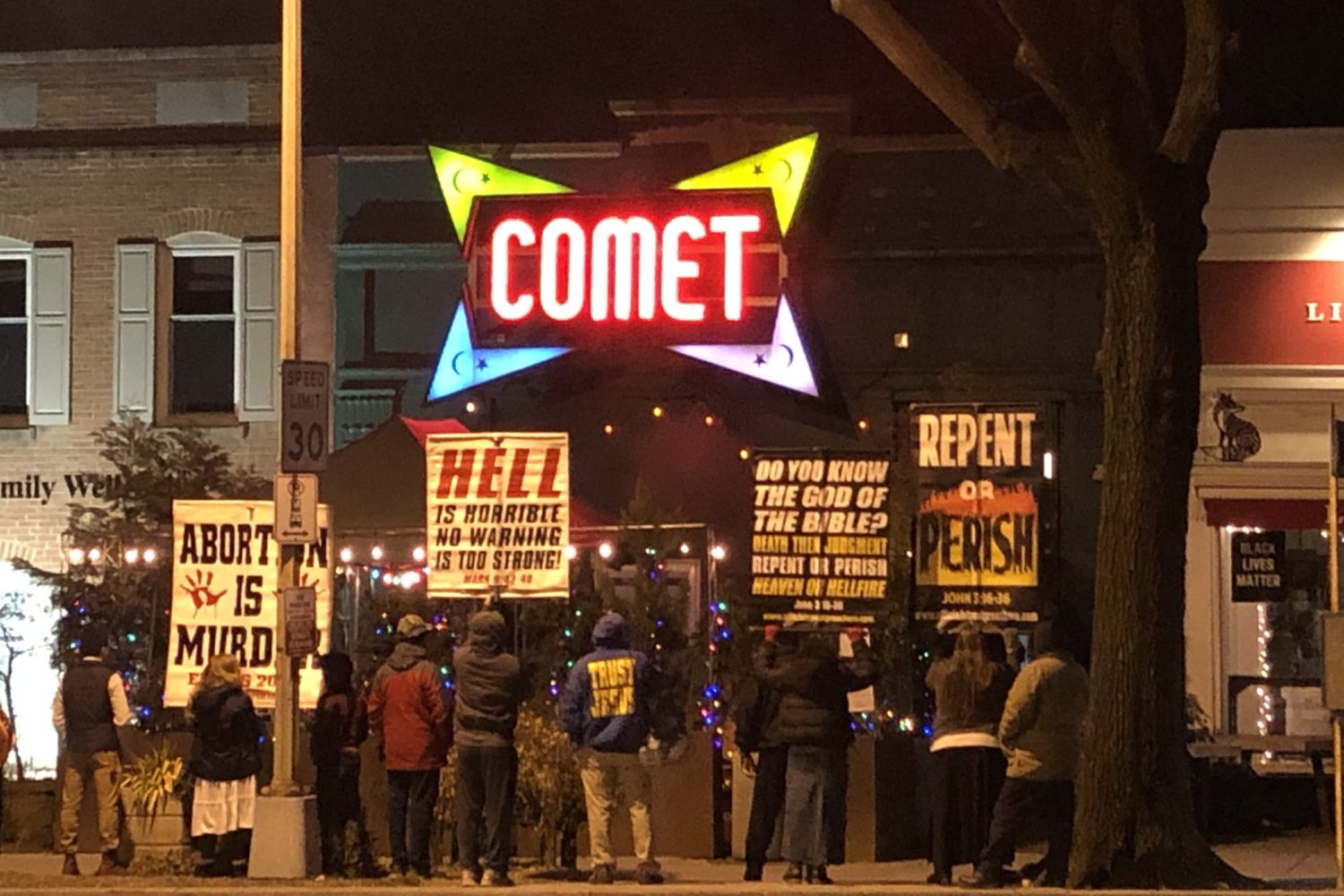“Pizzagate,” the bogus conspiracy theory that places the Northwest DC restaurant Comet Ping Pong at the center of a child-trafficking ring run by Hillary Clinton and her top advisers, lost one of its major backers last Friday when Alex Jones, the Texas conspiracy blogger, apologized for his role in promoting the phony story. Yet despite Jones’s apology, the fake-news story continues to fester among its diehard believers.
The Pizzagate story, which first emerged last November, put Comet and its owner, James Alefantis, on the receiving end of a campaign of online abuse and death threats that culminated in December when a gunman entered the restaurant on a busy Sunday afternoon, claiming he was there to “self-investigate” the Pizzagate claims and rescue children.
Jones’s site, Infowars, had been one of the most prominent promoters of the Pizzagate story, which originated from fallacious interpretations of emails stolen from the personal account of Clinton’s 2016 campaign chairman John Podesta and published by Wikileaks. Infowars was also one of the websites liked on Facebook by Edgar Maddison Welch, the 28-year-old North Carolina resident who pleaded guilty on Friday to the shooting, which resulted in physical damage to the restaurant.
“In our commentary about what had become known as Pizzagate, I made comments about Mr. Alefantis that in hindsight I regret, and for which I apologize to him,” Jones said in his apology. “We were participating in a discussion that was being written about by scores of media outlets, in one of the most hotly contested and disputed political environments our country has ever seen.”
But Jones’s rare act of contrition appears to had little impact on the online—and sometimes real-world—hordes who bought into the story. On Voat, a Reddit-like site that sprouted up last year when the popular message board started cracking down on Pizzagate and other phony claims propagated by “fake news” sources, the claims about Comet continue to be stoked as hotly as ever, with Jones—usually a beacon for other conspiracy theorists—being dismissed as a “shill,” “con man,” and “crock of shit.” The chatter continues just as loudly on Twitter, where a number of users, including many who gained tens of thousands of followers last year through their support for Donald Trump, continue to promote Pizzagate.
The conspiracy theory spilled over to real life again on Saturday, when a few dozen true believers—some from several states away—held a rally in Lafayette Park, across the street from the White House. According to Will Sommer, an editor for the Hill and the author of Right Richter, a newsletter about right-wing media, Jones’s recanting of Pizzagate meant little to the protesters.
@InfoPasser I asked some ppl about it, they say it’s because “someone” got to him
— Will Sommer (@willsommer) March 25, 2017
Along with Welch’s guilty plea, Jones’s apology also coincided with the deadline under a Texas statute that gives someone accused of making false claims one month to retract and apologize or face a libel suit. (Alefantis had sent Jones a letter in February that demanded such a statement.) Still, the damage Comet’s and Alefantis’s reputations have endured is far from being remedied.
“I am pleased that Mr. Jones has apologized and admitted that he and his employees repeatedly spread falsehoods about me and my restaurant,” Alefantis says in a statement released through a publicist. “I wish that he would have made this admission and apology months ago. And his apology, while welcome, does nothing to address the harm he and his company have done to me, my business, and my community. That said, we can all hope that Mr. Jones’ retreat is the beginning of a process to hold accountable the people who motivated an armed gunman to travel across state lines and fire his weapon in a family-friendly restaurant.”
Alefantis’s spokeswoman also told the Washington Post over the weekend that he “continue[s] to consider our legal claims.” Yet even if Jones is backing down, other major Pizzagate promoters are unapologetic. A 60 Minutes story about fake news on Sunday featured Alefantis recounting the threats and harm the conspiracy theory brought upon him. But 60 Minutes also spent time with Mike Cernovich, a California conspiracy-theory blogger who was completely unapologetic in promoting stories—including ones about Comet Ping Pong—that are easily debunked with the slightest bit of fact-checking.
“What I’m doing is, it’s punchy, it’s fun, it’s counterintuitive, it’s counter-narrative, and it’s information that you’re not gonna see everywhere else,” Cernovich told CBS News’s Scott Pelley.
Even if Cernovich and his readers believe all those things about his blog posts, it doesn’t make them any more veracious. But in a framework where robust web traffic is more important than truthfulness, racking up pageviews and social-media impressions can far more persuasive than presenting a set of hard facts. No matter how many times DC Police and the FBI state that there is zero evidence to back up the Pizzagate claims, its believers continue to dig in, both online and—sometimes—in person.
That creates a pretty bleak outlook for a place like Comet Ping Pong, even as diners flock to the restaurant to support it through an unwarranted sliming.
“The damage that has been done to my company and business and my community, all will remain forever,” Alefantis told the New York Times on Sunday.
Even if Jones—whether out of fear of litigation or some other reason—is moving on from Pizzagate, it’s impossible to scrub the internet entirely of its conspiracy-theory and fake-news peddlers. Comet Ping Pong may have other legal options worth pursuing, but there may be no way to fully stamp out the nonsense.


















